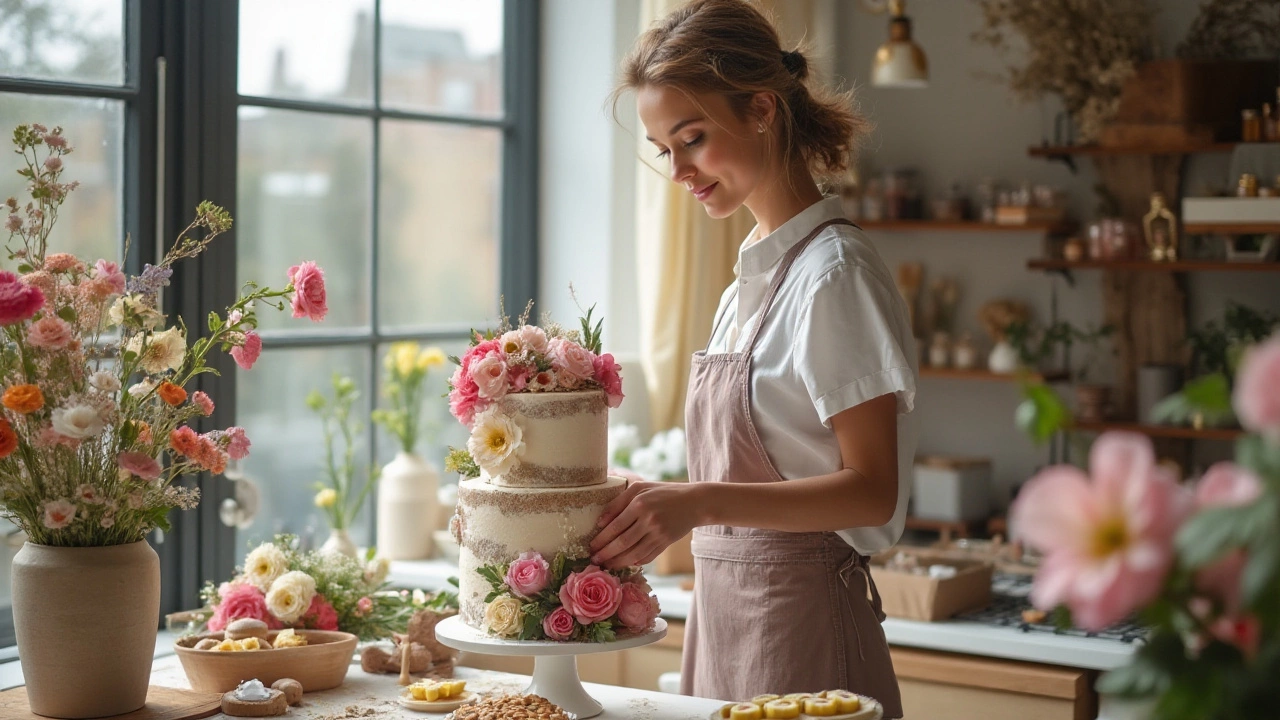Luxury Wedding Cakes in Bristol: Style, Budget, and Vendors
Thinking about a show‑stopping cake for your big day? You’re not alone. A luxury cake can be the highlight of the reception, but it doesn’t have to break the bank if you plan smart.
What Makes a Cake Luxury?
Luxury isn’t just about price. It’s about the details: fresh, high‑quality ingredients, hand‑crafted designs, and a baker who listens to your vision. Think layers of rich ganache, real gold leaf, fresh fruit, or a custom shape that matches your wedding theme.
When you look at a luxury cake, you’ll notice the precision of the piping, the smooth finish of the fondant, and the creativity in the decorations. These cakes often use specialty items like edible pearls, fresh flowers, or hand‑painted elements.
Setting a Realistic Budget
First, decide how much of your total wedding budget you want to spend on the cake. A common rule is 2‑5 % of the overall budget. If you’re planning a £30,000 wedding, that gives you £600‑£1,500 for a high‑end cake.
Ask bakers for a clear breakdown: base price, decoration costs, and any extra fees for delivery or set‑up. Some bakers charge per tier, so fewer tiers can keep costs down without sacrificing style.
Don’t forget tasting sessions. A tasting usually costs a small fee that’s applied to your final bill. It’s a chance to lock in flavors and avoid surprises later.
If you love the look of a multi‑tier masterpiece but need to trim the price, consider using a thinner tier or swapping expensive decorations for fresh seasonal flowers from a local florist.
Choosing the Right Baker in Bristol
Start by browsing local bakeries that specialize in wedding cakes. Look for portfolios that showcase both classic and modern designs. Read reviews to see how they handle communication and deadlines.
Schedule a meeting with at least two bakers. Bring photos of cakes you love, and be ready to talk about flavors, colors, and any dietary needs. A good baker will suggest ideas you might not have thought of, like using a flavor‑infused mousse instead of traditional buttercream.
Ask about their lead time. Luxury cakes often require 4‑6 weeks of preparation, especially if they involve intricate sugar work.
Design Tips That Wow
Keep the overall wedding theme in mind. A modern, minimalist wedding pairs well with a sleek, white fondant cake with a single metallic accent. A vintage‑inspired wedding can shine with a buttercream rose cascade and delicate lace details.
Color choices matter. Soft pastels work for spring, while deep jewel tones fit a winter celebration. If you’re unsure, ask the baker for a mock‑up or a digital rendering.
Think about the cake’s size versus the number of guests. A single‑tier cake can be a stunning statement if it’s beautifully decorated and surrounded by a dessert table of cupcakes or macarons.
Practical Considerations
Make sure the venue can accommodate the cake’s weight and size. Some historic venues have strict rules about heavy items on tables.
Confirm the delivery and set‑up time. Most bakers arrive a few hours before the reception to ensure the cake stays fresh.
Finally, decide on a backup plan. A small “slice cake” stored in a fridge can be a lifesaver if anything goes wrong during transport.
Luxury cakes are all about turning your sweet vision into reality. With a clear budget, the right baker, and a few design tricks, you can enjoy a cake that looks as amazing as it tastes – without the stress.
The Art and Elegance of Wedding Cake Designers
In the world of weddings, a fancy baker, often known as a wedding cake designer, plays a pivotal role in crafting confections that are not just desserts, but works of art. These artisans combine culinary skills with creative flair to design cakes that reflect the couple's style and theme of the event. Whether working with traditional three-tier styles or contemporary, bespoke designs, wedding cake designers have become integral to the celebration. This article delves into their roles, the skills required, and tips on choosing the perfect one for your special day.
View More